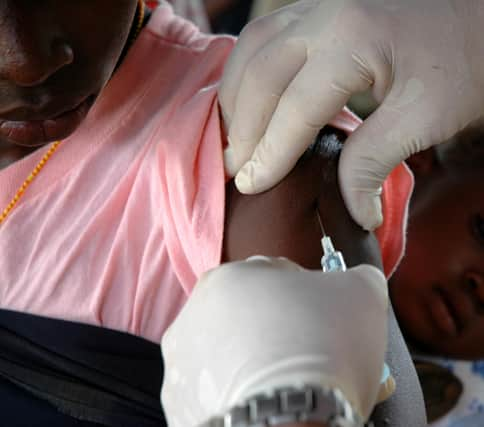We must wake up to human impact of aid cuts - David Hope-Jones


Hospitals are lacking a wide range of pharmaceuticals including anaesthetics, which has hit maternity care hard, with caesareans cancelled, clinics closed and patients turned away. It has been reported that over a third of Malawi’s 28 districts have run out of many drugs, with some drugs, like thiopentone, not having been available in Malawi for over a year.
The procurement and distribution of medical drugs in Malawi is controlled by the Central Medical Stores and they are not without their critics. There have certainly been perennial problems with drugs access in Malawi, with another acute shortage in 2013.
Advertisement
Hide AdAdvertisement
Hide AdIt is widely accepted that there have been management and logistical challenges within Malawi and the issue is undoubtedly also exacerbated by the current global distribution issues arising from the pandemic, but the main cause is simpler than this.


It is almost universally accepted in Malawi that the fundamental cause of the problem is insufficient funding in the health service. Malawi’s health budget is £190 million; with a population of over 19 million, that’s a per person annual health budget of under £10.
To put that into context, the total current UK healthcare expenditure is estimated at £269 billion by the Office of National Statistics, that’s over £4,000 per person.
But the situation is actually far worse than this, as funds pledged to Malawi by countries including the UK (and against which plans have been made in Malawi) are being cut and promises broken. Before it was scrapped, the UK Government’s Department for International Development invested around £80 million annually in Malawi, with much of its work focussed on health and specific projects supporting the Central Medical Stores. This has dropped to £52.4m this year and is now being halved again to £25.4m next year.
It is hard not to draw a line between the current health crisis in Malawi and the UK’s decision to cut aid to the country.
When the issue was recently raised by Glasgow MP, Patrick Grady, in the Commons, the Minister for Africa wrote in response to say the UK was advocating for Malawi’s Government to increase budgetary allocations to health and therefore the per-capita spending on health. This seems deeply uncomfortable. Malawi’s sub £10 per person annual health budget is 9 per cent of Malawi’s GDP; the UK’s health budget of over £4,000 is 10 per cent of our GDP.
I’m sorry for all the numbers here, but the point I’m making is that it isn’t the political decisions in Malawi on whether to allocate 9 or 10 per cent of GDP to health that’s the issue, it’s the fact that £10 per person is woefully insufficient, especially when partners break promises and cut their support.
The drugs shortage in Malawi is a complex, longstanding and multi-faceted problem. Supported by the Scotland Malawi Partnership, experts from across Scotland’s hospitals, universities and charities are coming together to look at this issue and listen to our counterparts in Malawi. By acting collectively and collaboratively, we hope there is a meaningful contribution Scottish civic society can make to support our partners in Malawi on this issue.
Advertisement
Hide AdAdvertisement
Hide AdBut perhaps the first and most important thing we can do is to shine a light on the issue: praising the outstanding work being done by health leaders in Malawi to deliver despite incredible challenges and recognising how the UK’s own cuts are exacerbating, if not actively contributing, to this crisis. We hope, as a family of nations, we wake up to the human impact of these appalling cuts and think again.
To learn more about the latest in Malawi on this issue and consider how you can help, please visit: www.scotland-malawipartnership.org/news/drugs-shortages
David Hope-Jones OBE, Chief Executive, Scotland Malawi Partnership
Comments
Want to join the conversation? Please or to comment on this article.